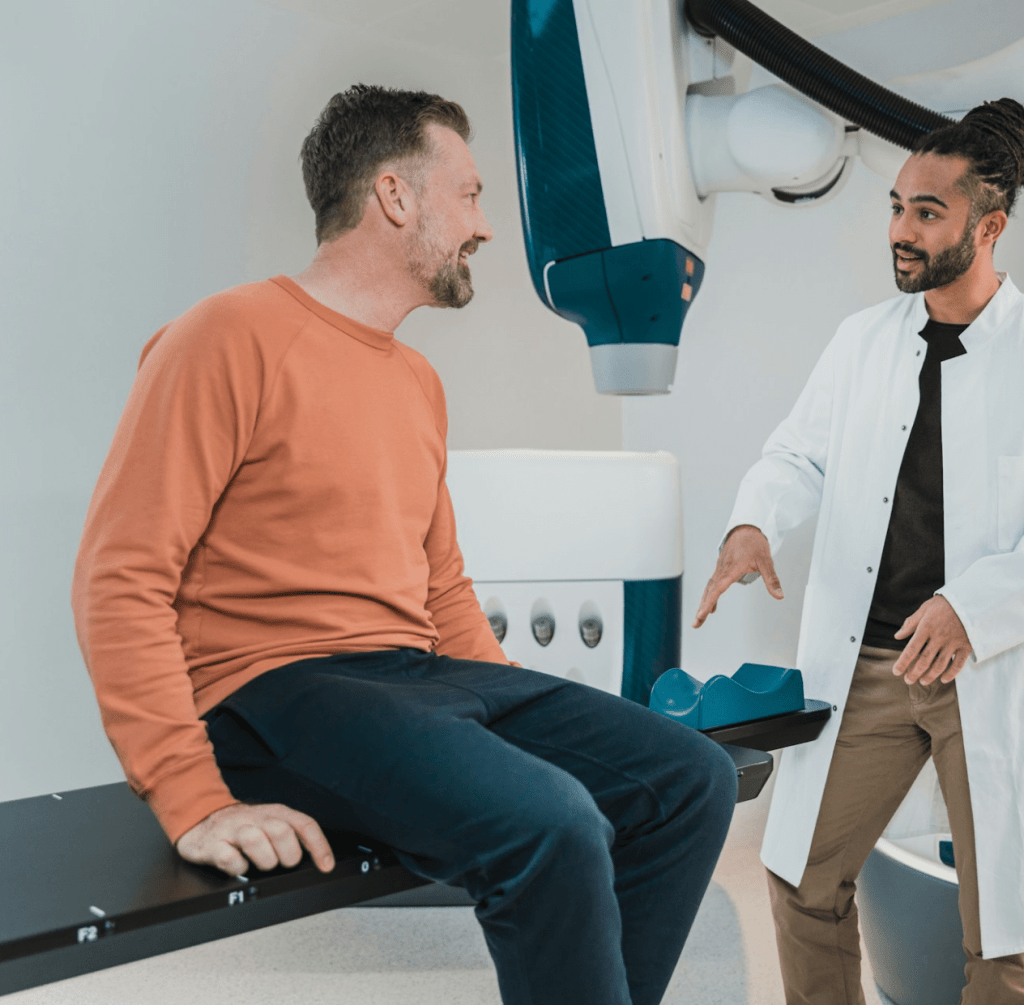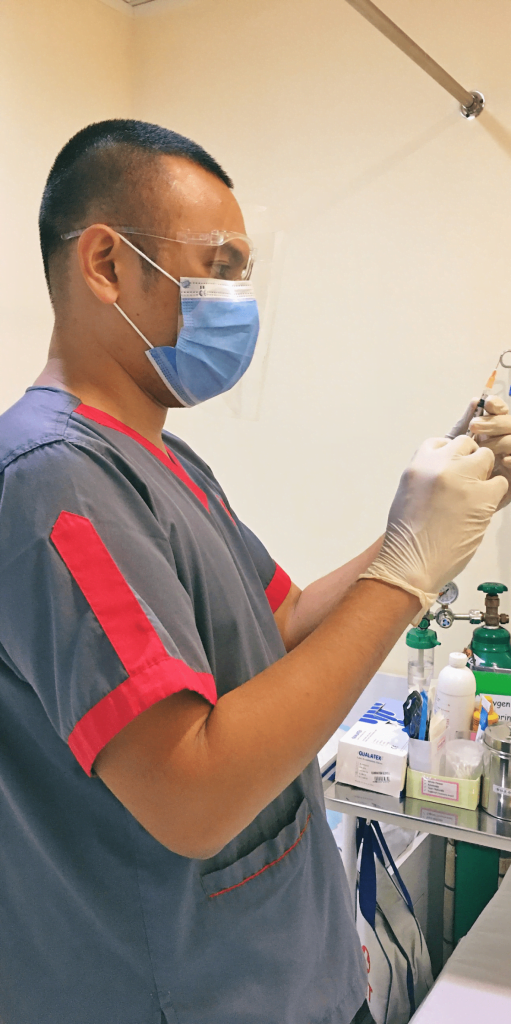Regain Confidence with Expert Erectile Dysfunction Treatment in Atlanta
Compassionate Care for Men at Every Stage of Life
Take the First Step Towards a More Satisfying Sex Life Today
Are you struggling with erectile dysfunction (ED)?
You’re not alone, and there is help available. Erectile dysfunction affects many men at various stages of their lives. At Atlanta Men’s Clinic, we provide advanced treatment plans to help you regain confidence and enjoy a fulfilling sex life.
What Is Erectile Dysfunction?
Erectile dysfunction (ED) is the inability to achieve and maintain an erection sufficient for satisfactory sexual performance. It’s a common condition, affecting one in ten men at some point in their lives, and often proves to be an emotional hurdle that affects both men and their partners. Often, ED is a symptom of other health issues, including cardiovascular disease, diabetes, or neurological disorders.
Discover How Atlanta Men’s Clinic Can Help You Overcome Erectile Dysfunction
AT ATLANTA MEN’S CLINIC, WE USE ONLY THE BEST AND MOST PROVEN TREATMENTS!
Our erectile dysfunction treatments at Atlanta Men’s Clinic go beyond traditional methods. We utilize cutting-edge therapies including PRP, exosomes, and specialized peptide formulas, which are carefully selected to target the underlying causes of ED.
These treatments are administered with precision, focusing on safety and effectiveness, ensuring not only improved sexual performance but also enhanced overall vitality.

Don't let erectile dysfunction hold you back
Our cutting-edge treatments are designed to restore your sexual health and boost your confidence.
Schedule your private consultation at Atlanta Men’s Clinic today and start your journey towards a more satisfying sex life.

What Are the Causes of Erectile Dysfunction?
- Erectile dysfunction (ED) can result from a variety of factors, and understanding these causes is essential for effective treatment. Here are the main causes:
Psychological Factors
- Stress and anxiety
- Depression
- Relationship issues
- Performance Anxiety
Biological Factors
- Cardiovascular diseases like heart disease, high BP
- Type 2 diabetes
- Obesity
- Hormonal imbalances like low testosterone (low T)
- Neurological disorders like multiple sclerosis
Lifestyle Influences
- Poor diet
- Lack of exercise
- Smoking & drug use
- Excessive alcohol consumption
Medications
- Certain prescription drugs, such as antidepressants and antihypertensives
- Understanding the causes of erectile dysfunction is the first step toward effective treatment.
- At Atlanta Men’s Clinic, we provide personalized care to address your unique needs.
How is Erectile Dysfunction Diagnosed?
At Atlanta Men’s Clinic, we use a comprehensive diagnostic process to identify the underlying causes of erectile dysfunction and guide you towards the most effective treatment options.
Our Diagnostic Process Includes:


Comprehensive Lab Work
Blood tests to check hormone levels and identify any underlying health issues that may be contributing to ED.


Physical Examination
A thorough assessment of your physical health to pinpoint potential causes of erectile dysfunction.


Ultrasound Imaging
Penile Doppler ultrasound to evaluate blood flow to the penis and detect any vascular issues.
It is important for patients to be open and honest with their healthcare provider to get an accurate diagnosis and receive effective treatment. By sharing your symptoms and medical history, you help us tailor the best possible treatment plan for you.
Can Erectile Dysfunction Be Treated?
- Absolutely. Erectile dysfunction is highly treatable with various modern approaches. At Atlanta Men’s Clinic, we have successfully helped many men overcome ED through advanced, personalized treatments.
Am I a Candidate for ED Treatment?
- If you struggle with achieving or maintaining an erection, you may be a candidate for our ED treatments. At Atlanta Men’s Clinic, we offer the most advanced, non-surgical solutions tailored to your specific needs.
What Are the Treatment Options for Erectile Dysfunction at Atlanta Men’s Clinic?
At Atlanta Men’s Clinic, we offer a range of advanced and personalized treatment options to address erectile dysfunction. Our goal is to help you achieve optimal sexual health and confidence through the most effective and innovative therapies available.
Testosterone Replacement Therapy
- Treating symptoms of low testosterone can often improve erectile function, restore libido, and elevate mood.
- For men with low testosterone, this therapy may also protect against some of the risk factors for ED by reducing belly fat, increasing insulin sensitivity, and lowering the risk of diabetes.
Peptides
- Injectable peptides like PT-141 and BPC-157 have emerged as popular, safe and effective alternatives to traditional ED treatments.
- These peptides work by stimulating your body’s natural growth hormone levels to help with sexual dysfunction.
Trimix Injections
- Trimix is also known as intracavernosal injections, consisting of a mixture of three FDA-approved drugs: papaverine, phentolamine, and prostaglandin E1.
- These ingredients work together to improve blood flow to the penis, with a success rate of approximately 80%.
Platelet-rich Plasma (PRP)
- PRP for erectile dysfunction involves injecting platelet-rich plasma into the penis, which improves blood flow and encourages the growth of new blood vessels, resulting in firmer, longer-lasting erections.
- PRP for ED has been effective in over 80% of men with ED and has minimal side effects and downtime.
X-Shot (Exosomes)
- Our innovative X-Shot therapy uses umbilical cord exosomes to enhance the effectiveness and longevity of PRP.
- These advanced exosomes utilize regenerative power to promote tissue repair and regeneration, improving erectile function and overall sexual health.
Bocox
- Bocox® is a trademark Botox procedure for ED that enhances sexual performance, increases sensitivity, improves stamina, and can enlarge the flaccid penis for up to six months.
- By reducing muscle tension in the penis, Bocox helps achieve longer-lasting erections, greater pleasure, and better control over ejaculation.

Why Choose Atlanta Men’s Clinic for Your Erectile Dysfunction Treatment?

Experienced Professionals
Personalized Treatment Plans

Discreet, Supportive Environment

Proven Success

Experienced Professionals
Our team comprises leading experts in men’s sexual health. They are empathetic professionals who understand the sensitive nature of sexual health issues.

Personalized Treatment Plans
We recognize that each individual’s journey is unique. Our specialists design customized treatment plans to prioritize your well-being and strive for optimal results.

Discreet, Supportive Environment
We prioritize your privacy and comfort. Our confidential, supportive atmosphere allows open discussions about your concerns.

Proven Success
Atlanta Men’s Clinic excels in erectile dysfunction treatments. Our effective strategies and high patient satisfaction speak volumes.
Join those who’ve regained confidence and improved their quality of life with our personalized approach.
Take the First Step Towards a Fulfilling and Improved Sexual Life
Discover how we can help you prolong duration, increase satisfaction, and regain confidence in your sexual health.
Success Stories
"They make you feel like home! And most importantly, my life had changed 180 degrees after I started the treatment !! I Highly recommend Atlanta Men's Clinic."
"From the moment I walked in, I felt comfortable. They took the time to listen and offered real solutions for ED. The staff was incredibly supportive throughout the entire process, making it a stress-free experience. Can't recommend them enough!"
"Truly amazed by my transformation! I've got more energy and a newfound sense of clarity. They worked with me every step of the way, providing tailored options that have completely changed my life. Very grateful for their expertise and support."
"Absolutely happy with my results so far! From the beginning, I noticed a significant boost in energy levels and overall health. Their personalized approach tailored specifically to me has made all the difference. Thank you Atlanta Men's Clinic."
“Atlanta Men’s Clinic is the best thing that has ever happened to me. Within a day of getting my first shot, it was like an extra 50lbs of gravity had left my body."
Meet Our team

Dr. Juan Pablo Nieto MD
Sports Medicine and Chronic Joint Pain Specialist

Alyssa Shaffer
FNP-C
Men’s and Women’s Health Specialist

Nikki Newell
Registered Nurse and Registered Health Information Administrator

Diana Reeder
Practice Manager and Healthcare Administrator
Questions? We Have Answers.
Explore our FAQ section for quick answers to common questions about erectile dysfunction, and the advanced regenerative therapy options offered at Atlanta Men’s Clinic. The journey to a better you begins here.
How quickly can I see results from erectile dysfunction treatments?
- The timeframe for results varies by treatment. Some patients see immediate improvements with Trimix injections or the P-Shot, while testosterone replacement therapy may take several weeks.
How do I know which erectile dysfunction treatment is right for me?
- Our specialists will help determine the best treatment option for you based on a comprehensive evaluation of your health, lifestyle, and specific needs. We offer a range of personalized treatments to ensure the best possible outcomes.
Are there any side effects of erectile dysfunction treatments?
- Most treatments have minimal side effects. Common ones include temporary swelling, bruising, or redness at the injection site.
How is the X-Shot better than PRP for ED?
- The X-Shot combines PRP with umbilical cord exosomes for superior tissue regeneration and longer-lasting results, offering a more advanced and effective ED treatment than the P-Shot.
Are there non-surgical treatments for erectile dysfunction?
- Yes, we offer a variety of non-surgical treatments including hormone therapy, injectable treatments like Trimix and Peptides, and innovative procedures like the P-Shot and Bocox. These treatments are effective and have minimal downtime.
Can lifestyle changes improve erectile dysfunction?
- Absolutely. Lifestyle changes such as adopting a healthy diet, regular exercise, reducing alcohol intake, and quitting smoking can significantly improve erectile dysfunction. These changes can enhance the effectiveness of medical treatments as well.


